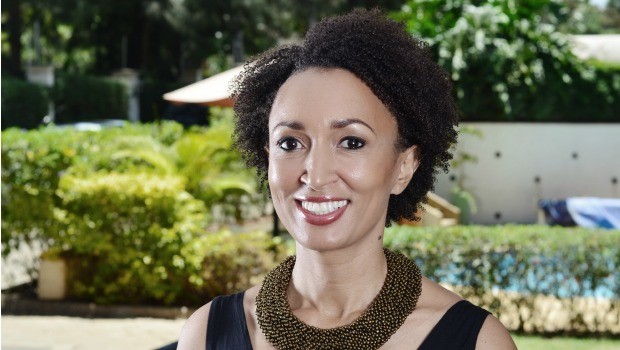I do not have the stats to prove that this is the norm, but a few hundred articles later, I am persuaded to believe that most successful entrepreneurs had thriving careers in their places of employment before they ventured out [for whatever reasons] into building an empire they could call ‘home.’
For some, the reasons were co-mingled: restlessness, boredom, passion, purpose, social justice and more. For Wandia Gichuru who spent fifteen [15] years working with the United Nations, World Bank and the UK government, the reason was restlessness and a longing to actively assist in alleviating poverty in her home country of Kenya. Plus working across continents with two children in tow was becoming a huge drag.
And so Wandia left a job which most of us probably envision only in our daydreams and returned home to Kenya in 2009 with little or no clue as to the path her life would take henceforth.
Fast-forward to 2011 and Wandia co-founded Vivo Active wear with a friend, Anne-Marie Burugu- a business idea which budded from their shared experiences.
Wandia and Anne-Marie used to attend dance classes but realized there was a paucity of appropriate exercise clothing to buy. A need birthed an idea and that idea birthed a business plan. They hired space in a mall and started to import health and fitness clothing for sale in Kenya.
Starting an entrepreneurial journey always has its high and low points. For Wandia -as shared in an interview with HowwemadeitinAfrica- one of her low points was inexperience.
“We were completely naive when we started. If I were to start a new business today with my four years experience, I would do things quite differently. For example, take staffing. Initially, I was hiring friends of cousins, not going out into the market to find the best-suited candidates. I wasn’t giving people clear contractual objectives linked to performance. That has been a struggle, and I’ve had a number of unfortunate incidents – including theft.
After importing her wares for a bit, Wandia decided it was time to test the waters and manufacture locally. She imported fabric from Asia, hired seven tailors and set up a workshop. Vivo Activewear now locally produces between 40 to 50 per cent of its wares.
What are the high points of her journey thus far? Being an employer. According to Wandia, running a successful enterprise is secondary to the feeling of being an employer.
Today, Vivo has more than 35 employees in six shopping mall outlets and the dream is getting bigger. Wandia believes that Vivo Activewear if steered right could become a global and lifestyle brand.
“I think globally, -she told HowwemadeitinAfrica- “If the price is right and our product unique, we could appeal to the black community living across the world. I think there is an opportunity there, but we need to up our game and get our [locally manufactured] clothing to an international standard. We have the potential to become a lifestyle brand.”
Like a needle in a haystack, Wandia searched for and eventually stumbled upon the seeds that birthed this enterprise. Are there ideas you are ignoring or tossing out straight up because they seem impossible or unimportant? You could try taking a closer look or running it by a trusted friend/colleague. It’s potentials may just amaze you.

